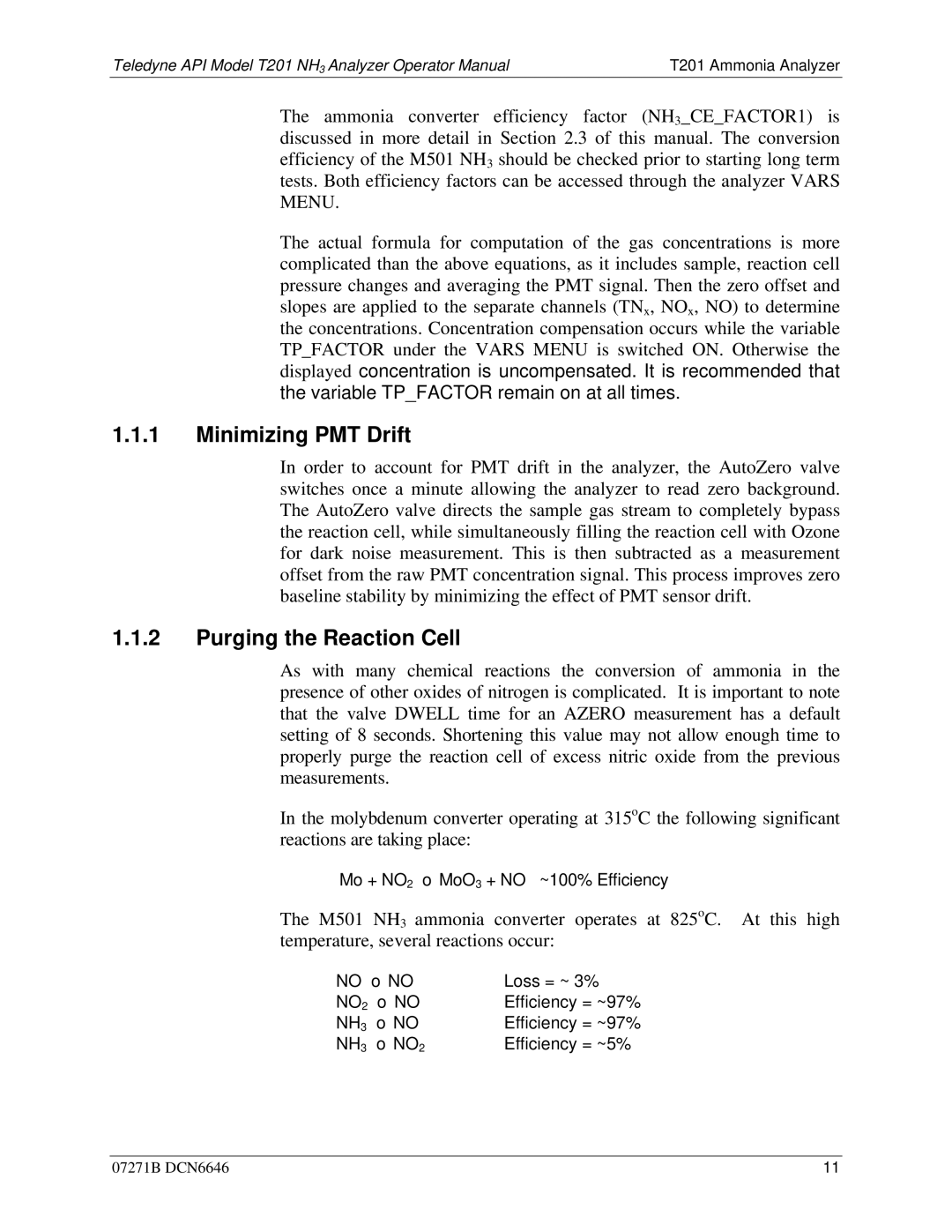Teledyne API Model T201 NH3 Analyzer Operator Manual | T201 Ammonia Analyzer |
The ammonia converter efficiency factor (NH3_CE_FACTOR1) is discussed in more detail in Section 2.3 of this manual. The conversion efficiency of the M501 NH3 should be checked prior to starting long term tests. Both efficiency factors can be accessed through the analyzer VARS MENU.
The actual formula for computation of the gas concentrations is more complicated than the above equations, as it includes sample, reaction cell pressure changes and averaging the PMT signal. Then the zero offset and slopes are applied to the separate channels (TNx, NOx, NO) to determine the concentrations. Concentration compensation occurs while the variable TP_FACTOR under the VARS MENU is switched ON. Otherwise the displayed concentration is uncompensated. It is recommended that the variable TP_FACTOR remain on at all times.
1.1.1Minimizing PMT Drift
In order to account for PMT drift in the analyzer, the AutoZero valve switches once a minute allowing the analyzer to read zero background. The AutoZero valve directs the sample gas stream to completely bypass the reaction cell, while simultaneously filling the reaction cell with Ozone for dark noise measurement. This is then subtracted as a measurement offset from the raw PMT concentration signal. This process improves zero baseline stability by minimizing the effect of PMT sensor drift.
1.1.2Purging the Reaction Cell
As with many chemical reactions the conversion of ammonia in the presence of other oxides of nitrogen is complicated. It is important to note that the valve DWELL time for an AZERO measurement has a default setting of 8 seconds. Shortening this value may not allow enough time to properly purge the reaction cell of excess nitric oxide from the previous measurements.
In the molybdenum converter operating at 315oC the following significant reactions are taking place:
Mo + NO2 MoO3 + NO ~100% Efficiency
The M501 NH3 ammonia converter operates at 825oC. At this high temperature, several reactions occur:
NO NO NO2 NO NH3 NO NH3 NO2
Loss = ~ 3% Efficiency = ~97% Efficiency = ~97% Efficiency = ~5%
07271B DCN6646 | 11 |
